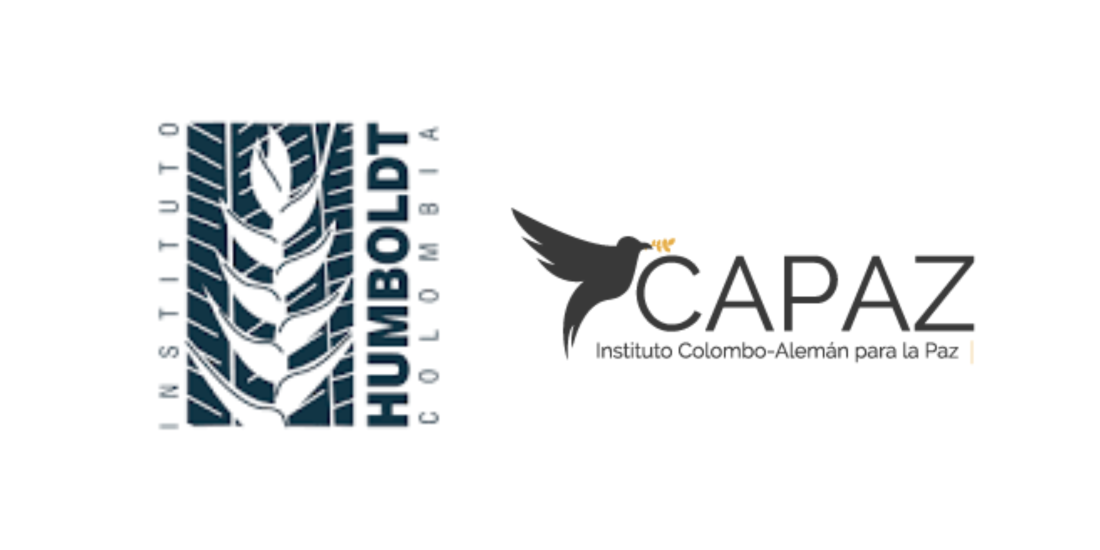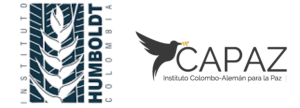
Humboldt Institute and Capaz sign science cooperation agreement to promote biodiversity and environmental peace

The Alexander von Humboldt Institute for Research on Biological Resources (Humboldt Institute) and CAPAZ have signed a Cooperation Agreement in a strategic alliance to strengthen research and promote biodiversity conservation. Both institutions seek to join efforts and knowledge to contribute to sustainable development and the well-being of the Colombian population.
This is one of the outcomes of the ColombiaCONNECT project, a network that promotes the fair and sustainable use of biological resources in which CAPAZ and the Humboldt Institute participate.
The Humboldt Institute, whose mission is to coordinate and conduct research that promotes knowledge and conservation of biodiversity, will work in partnership with CAPAZ, a binational entity dedicated to promoting research, teaching, and advisory activities on peace and conflict issues. Both institutions will share areas of common interest, such as bioeconomics, conservation of environmentally important areas, and integrated biodiversity management. The agreement will allow both institutions to consolidate a joint work agenda, identifying opportunities for research, the publication of results, and the organization of academic events on related topics. This will strengthen the work and mission of both parties in knowledge building and democratization, as well as in the establishment of collaboration networks with diverse stakeholders.
“The Framework Agreement between CAPAZ and the Humboldt Institute will allow us to strengthen ties and work on two issues of great relevance for Colombia: peace and the sustainable management of biodiversity. We are ready to explore innovative solutions to the country’s socio-ecological challenges, articulating teams from various disciplines, keeping peace and reconciliation with nature as an articulating element of our efforts”.
—Gisele Didier
Director of Knowledge Management.
The Humboldt Institute focuses on producing information and knowledge in key areas such as the promotion of the bioeconomy and the incorporation of biodiversity management to drive transitions towards sustainability. CAPAZ has developed research projects related to geographic information systems, sustainable development, environmental peace and bioeconomy, and its experience in science diplomacy has made it possible to connect the knowledge produced with public policy decision-making in Colombia and Germany.
“The common purposes of scientific rigor and social commitment shared by the Humboldt Institute and the CAPAZ Institute will allow us to move forward in strengthening research and academic reflections that contribute to the challenges of peacebuilding with social justice and environmental justice”.
— Vanesa Giraldo
CAPAZ Science Collaborator.
The two institutions share interests in the democratization of knowledge, biodiversity management, and environmental peace. These issues are closely related to the research missions of the Humboldt Institute and its strategic objectives of sustainability, regionalization and ownership. The cooperation between the Humboldt Institute and CAPAZ will promote the exchange of information and knowledge production in these key areas.
“The climate crisis, biodiversity loss, and growing environmental problems confirm that there is no sustainable peacebuilding without considering the socio-environmental aspect. For CAPAZ, it is a great joy to be able to sign the framework agreement with the Humboldt Institute to continue jointly developing research, educational programs, discussion events, and advisory spaces on environmental peace. Peace and environmental protection are two of the most important topics of the present and the future, and both topics require rigorous, interdisciplinary, and relevant research”.
—Stefan Peters
CAPAZ Academic Director.



